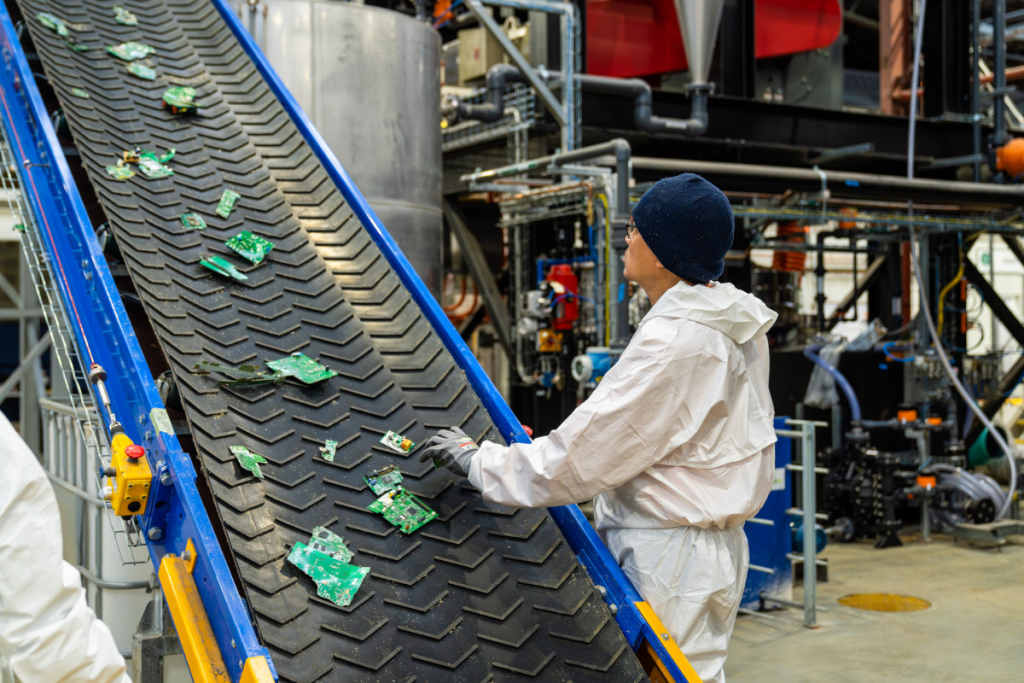
The Texas facility will use solvents to recover copper, gold and more from dissolved circuit boards, providing an alternative to traditional smelting. | Photo courtesy Mint Innovation
Mint Innovation, an Australian company that is scaling up a hydrometallurgical technology to recover precious metals from e-scrap, this week began construction on a $20 million refinery in Texas capable of processing nearly 9 million pounds per year of printed circuit boards.
Company leaders estimate the Longview, Texas, facility will be completed by the end of 2025 and will create 28 jobs. At that facility, Mint will bring in circuit boards sourced from e-scrap processors, dissolve the metals into a mixed solution and use solvents to selectively recover key metals.
From the 8.8 million pounds of circuit boards the facility will be able to process each year, Mint estimates it will recover 2.2 million pounds of copper and 1,100 pounds of gold, as well as other metals.
The U.S. entrance marks a major step for Mint, which launched in 2016 and has been steadily preparing for a commercial-scale launch. The company first developed a pilot plant, which led to a larger demonstration facility in Auckland, New Zealand. That spurred a commercial prototype plant in Sydney, Australia, which has been operating throughout 2024 and has a capacity of about 6.6 million pounds per year.
It was an expected move – company leaders recently told E-Scrap News they were gearing up for growth into North America – but the location, capacity and investment figure are new details. In its announcement, the company cited the Longview facility’s “proximity to technology and manufacturing supply chains” as key drivers for selecting that location.
Mint added that while Texas is home to major electronics manufacturing companies, it has a relatively low e-scrap recovery rate. A 2021 report for the Texas Commission on Environmental Quality found that, in 2019, about 35 million pounds of electronics were recycled in the state while 531 million pounds of electronics were disposed of. Mint framed its U.S. facility as an outlet that could facilitate greater regional e-scrap recovery, since collectors will have a closer downstream buyer for circuit boards.
The company also described its facility as a tool to build up U.S. domestic supplies of key metals. Copper and other metals recovered from e-scrap have regularly been included in U.S. government discussions of “critical materials,” an official designation of materials that are both essential to energy infrastructure and have unstable supply chains.
Concerns over the U.S. supply of metal and mineral feedstocks heightened just this week, as China announced it will ban exports of three elements included on the U.S. “critical minerals” list: antimony, gallium and germanium. The move, which was seen as retaliation for the U.S. launching new restrictions on exports of semiconductor chips and related tools to China, echoed previous Chinese government actions to restrict U.S. access to critical materials. Such actions contributed to U.S. government interest in funding domestic recycling and refining of rare earths and other metals.
Mint’s Texas plant received support from a local Longview economic development corporation as well as the federal government through the Department of Commerce SelectUSA program, which helps international startup companies invest in the U.S.